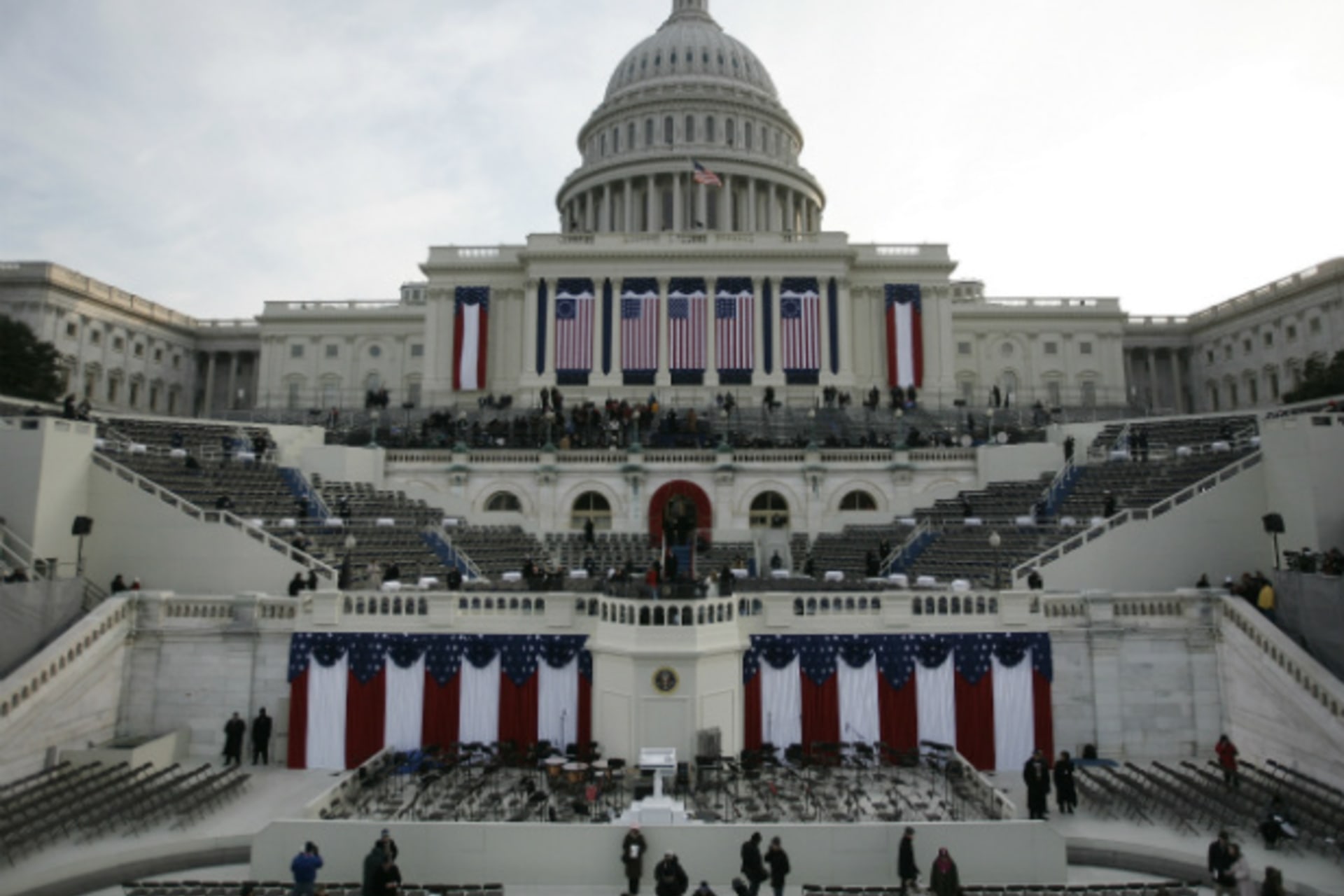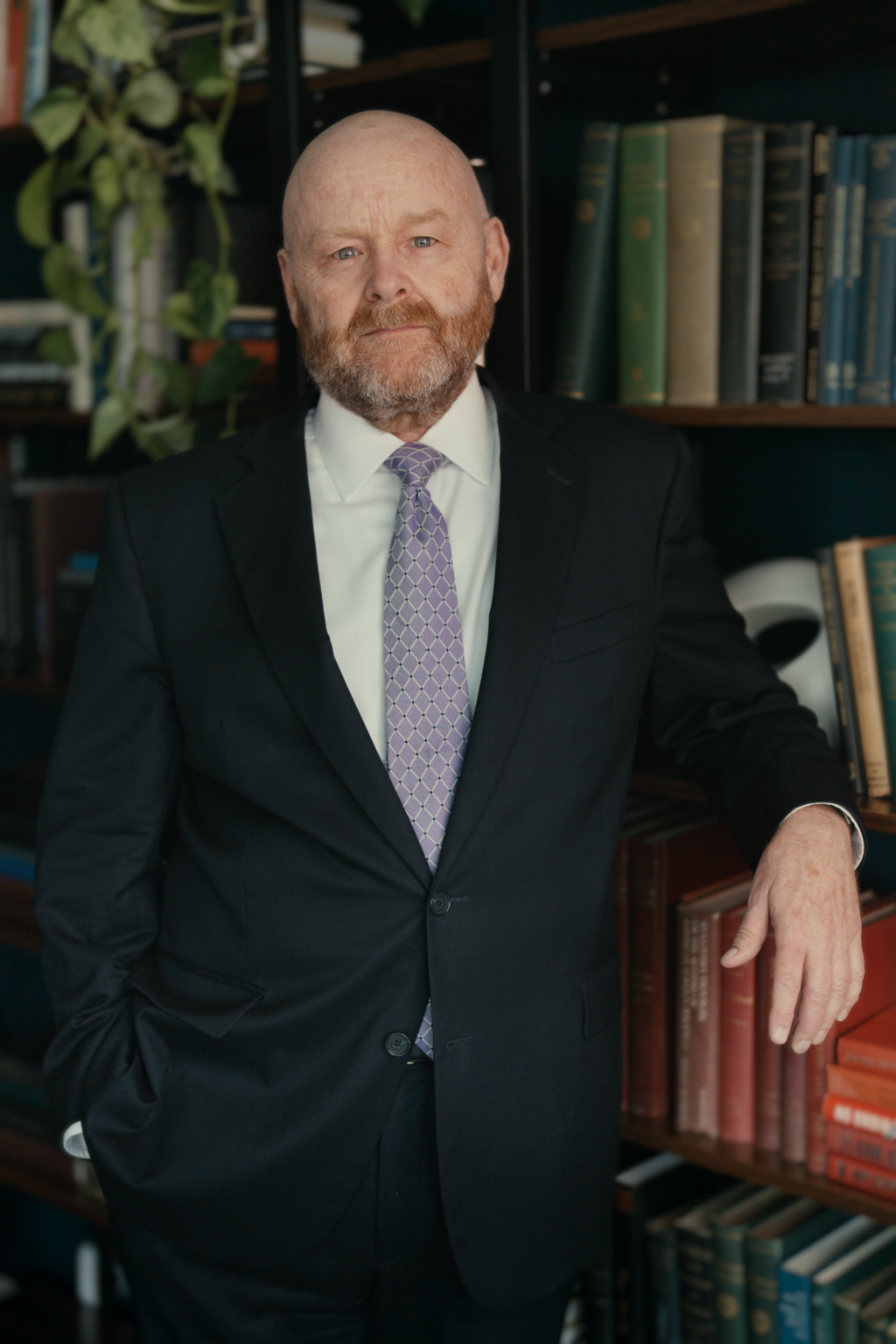TWE Remembers: The Best (and Worst) Inaugural Addresses

By experts and staff
- Published
Experts
![]() By James M. LindsayMary and David Boies Distinguished Senior Fellow in U.S. Foreign Policy
By James M. LindsayMary and David Boies Distinguished Senior Fellow in U.S. Foreign Policy
A year from today someone—perhaps Barack Obama, perhaps Mitt Romney, or maybe even Donald Trump—will stand outside the Capitol in Washington, D.C., and deliver an inaugural address ushering in a new presidential term. The odds are good that the speech will be forgettable. Most of them are.
But some speechwriter will get the chance to beat the odds. Let’s hope that she (or he) uses the next 365 days to figure out what makes for a great inaugural address. To help him or her along, here’s my list of the six best inaugural addresses along with a famous passage from each:
1. Thomas Jefferson (1801). Jefferson took office as the nation’s first political parties were just taking shape, marking the first time that the presidency passed from one party to another. Jefferson understood the moment and reminded his fellow citizens that more united the young nation than divided it.
We are all Republicans, we are all Federalists.
2. Abraham Lincoln (1861). As the United States descended into the darkness of the Civil War, Lincoln held out hope for his nation. He urged North and South to settle their differences within the Union rather than break it apart. His call went unheeded, but not because of a lack of eloquence.
I am loath to close. We are not enemies, but friends. We must not be enemies. Though passion may have strained it must not break our bonds of affection. The mystic chords of memory, stretching from every battlefield and patriot grave to every living heart and hearthstone all over this broad land, will yet swell the chorus of the Union, when again touched, as surely they will be, by the better angels of our nature.
3. Abraham Lincoln (1865). Lincoln had good reason to be bitter as he prepared to take the oath of office for the second time. Thousands of his countrymen had died on the battlefield, and many thousands more had seen their lives uprooted. Many of his supporters wanted him to be unsparing in his treatment of the soon-to-be-defeated Confederacy. Rather than invoking themes of punishment and revenge, however, Lincoln delivered a speech of incredible generosity and wisdom.
With malice toward none, with charity for all, with firmness in the right as God gives us to see the right, let us strive on to finish the work we are in, to bind up the nation’s wounds, to care for him who shall have borne the battle and for his widow and his orphan, to do all which may achieve and cherish a just and lasting peace among ourselves and with all nations.
4. Theodore Roosevelt (1905). TR took the oath of office just as the United States came into its own as an economic and world power. He encouraged his fellow citizens to recognize their good fortune to inherit the hard work of the generations before them, and he called on them to undertake the hard work necessary to keep the United States a great power. In all, it was the inaugural address one would expect from a man who wouldn’t let a bullet stop him from giving a speech.
Never before have men tried so vast and formidable an experiment as that of administering the affairs of a continent under the forms of a Democratic republic....Upon the success of our experiment much depends, not only as regards our own welfare, but as regards the welfare of mankind.
5. Franklin Delano Roosevelt (1933). FDR took office during the depth of the Great Depression. Facing a country gripped with uncertainty and self-doubt, he understood that he needed to restore not just the country’s economic confidence but also its psychological confidence. He succeeded.
So, first of all, let me assert my firm belief that the only thing we have to fear is fear itself--nameless, unreasoning, unjustified terror which paralyzes needed efforts to convert retreat into advance.
6. John F. Kennedy (1961). As the 1960s dawned, Americans worried that their epic victory in World War II was about to be eclipsed by the inexorable march of global communism. JFK responded to these fears with a sweeping pledge that America would bear any burden in the defense of liberty and a rousing call for Americans to support their country.
And so, my fellow Americans: ask not what your country can do for you--ask what you can do for your country.
No list of the best inaugural addresses ever would be complete without mentioning which president delivered the worst one ever. You might think that the winner in this category would be William Henry Harrison. He took two hours to deliver an 8,000-word speech outdoors, without a hat or coat, on a bitterly cold and snowy day. Pity the poor crowd that had to listen to that.
But no, that performance only earns William Henry Harrison the runner-up prize. The winner of worst inaugural speech ever was James Buchanan. Why? Because he used his 1857 speech to complain that the country was so consumed in debating slavery that it was ignoring other, more important issues. That reveals a lot about why Buchanan tops virtually every list of the worst presidents in American history.
